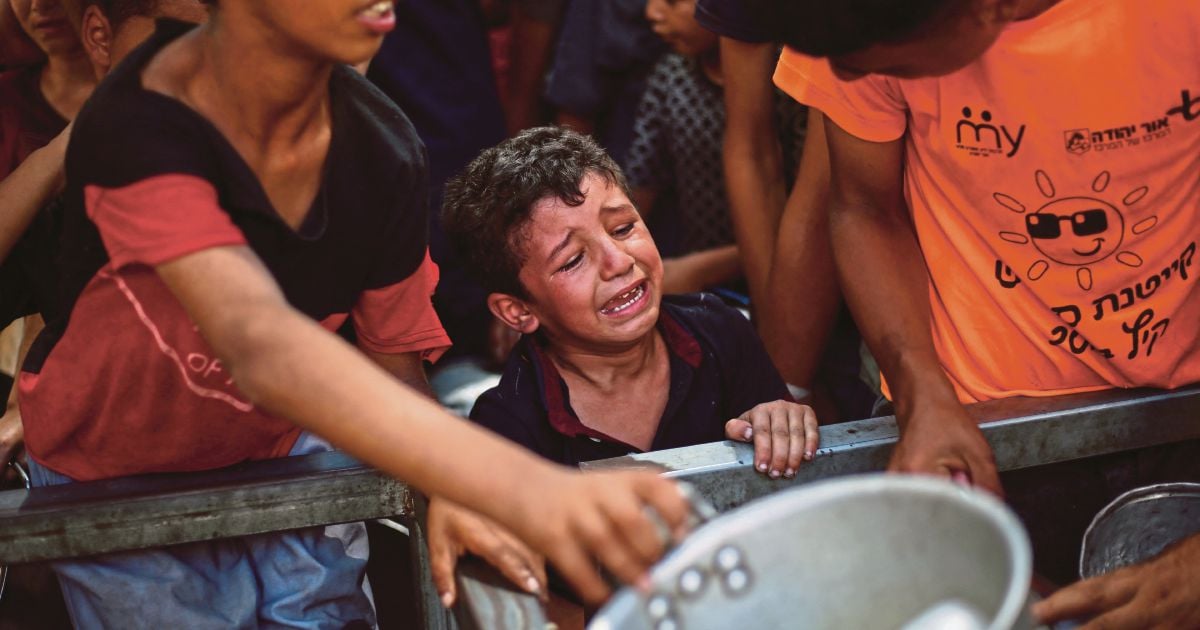FAMINE has left its mark on the bodies of Gaza’s children: sunken eyes in wasted faces, sparse hair, prominent ribs, dry skin and a joyless apathy. It has also taken scores of lives.
For those who survive, the physical and mental burden of hunger and nearly two years of relentless war and displacement will likely scar their bodies and brains, affecting their future health and potential, say experts.
Marina Adrianopoli, the World Health Organisation’s (WHO) technical lead for nutrition for the Gaza response, said global studies showed a range of “long-term effects and irreversible damages” if a child did not get enough food in the first year of life — especially if combined with trauma and stress.
Memory, language, learning and productive capacity could all be affected.
“If the percentage of children affected by acute malnutrition or chronic malnutrition is high, there is the risk of an entire generation being permanently affected with long-lasting impacts on physical growth and socioeconomic potential, not to mention the trauma and stress, which may last forever,” she said.
Marko Kerac, clinical associate professor at the London School of Hygiene & Tropical Medicine, said children were vulnerable to the worst long-term effects because their organs were still developing.
“There are epigenetic switches, (or) changes to our genes, which are either switched off or on in those critical early years, and that’s why the very youngest, especially in the first 1,000 days, are affected,” he told the Thomson Reuters Foundation.
“In many studies of survivors of famine or early malnutrition, we see increased risk of chronic diseases like heart disease, diabetes, high cholesterol (and) paradoxically a greater risk of overweight or obesity, and there are also mental health effects.”
Health officials in Gaza say 370 people, including 131 children, have died of malnutrition and starvation caused by acute food shortages, mostly in recent weeks.
On Sunday, a top United Nations official said there was a “narrow window” to prevent famine from spreading further and called on Israel to allow unimpeded aid delivery.
According to a global hunger monitor, hundreds of thousands of Palestinians are already experiencing or at risk of famine in areas including Gaza City, where Israel has launched a new offensive against Hamas.
Acute malnutrition weakens the immune system, leading to more infections like diarrhoea and pneumonia, which can be fatal, especially without access to safe drinking water and functioning health systems.
Malnutrition also affects the body’s ability to recover from injuries.
“We have something called an infection-malnutrition vicious cycle, and people who are even mildly malnourished, especially over longer periods, will become more vulnerable,” said Kerac.
“Even when children recover to the normal weight, they are still at a much greater risk of mortality and infections and also poor development… so they carry that risk into the months and even a year or two after malnutrition.”
Kerac cited studies into the Dutch Winter Hunger at the end of World War 2 that found a link between pre-natal micronutrient deficiencies and neurodevelopmental schizophrenia or related personality disorders.
On Saturday, Save the Children said more than 20,000 children had been killed in the conflict, the equivalent of one child killed every hour on average.
It cited data released by the government media office in Gaza, which said about two per cent of Gaza’s child population had now been killed, including at least 1,009 children under the age of 1. Thousands more are missing or presumed buried under rubble.
“This war is a cruel, depraved and deliberate war on the children of Gaza and their future, a generation stolen,” said Ahmad Alhendawi, Save the Children’s regional director for the Middle East, North Africa and Eastern Europe.
“If the international community does not step up, we are facing the very real risk of the total annihilation of future Palestinian communities,” he added.
The rate of deterioration in Gaza had been particularly shocking, when compared to other cases of famine in Sudan, South Sudan and Yemen, Adrianopoli said.
In those cases, rates of acute malnutrition were often already high before a crisis. However in Gaza, the rate of acute malnutrition was below one per cent before the Israeli assault, she said, making the situation there “unprecedented”.
The writer is from Reuters
© New Straits Times Press (M) Bhd






